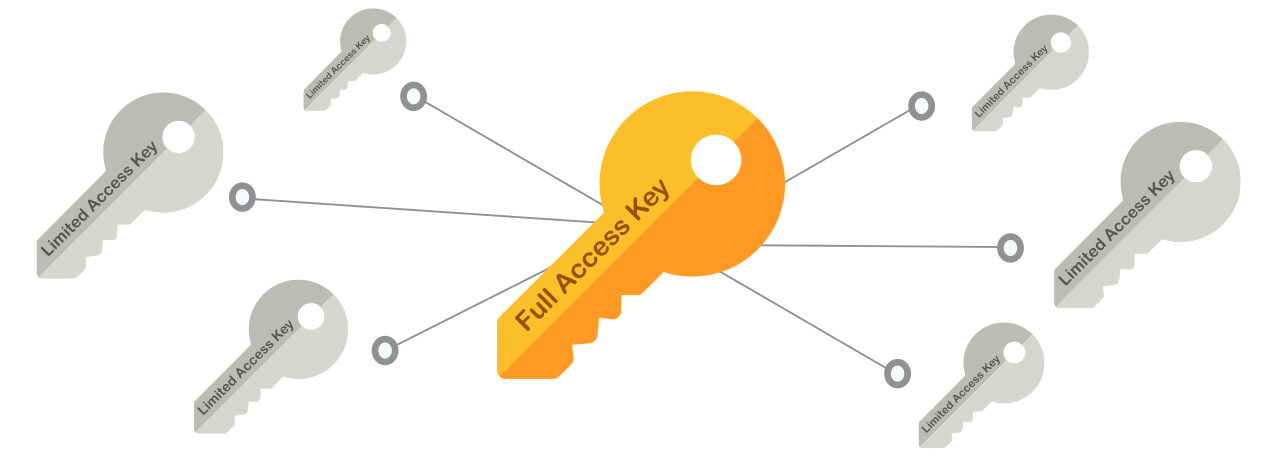Access Keys
In NEAR, users control their accounts using access keys, which can be full-access keys or function-call keys. Full-access keys allow complete control over the account, while function-call keys restrict actions to specific contracts. This system enables secure sharing of permissions and simplifies user interactions with applications.
Learn more about the benefits of using multiple keys in our blog post: Benefits of Function-Call Keys
Access Keys
In most blockchains, users control their accounts by holding a single private key (a secret only they know) and using it to sign transactions.

In NEAR we distinguish two types of Access Keys:
Full-Access Keys: Have full control over the account, and should never be sharedFunction-Call Keys: Can only sign calls for specific contracts, and are meant to be shared
Every account in NEAR can hold multiple keys, and keys can be added or removed, allowing a fine-grained control over the account's permissions.
Function-Call Keys
Function-Call keys can only sign transactions calling a specific contract, and do not allow to attach NEAR tokens to the call.
They are defined by three attributes:
receiver_id: The only contract which the key allows to call, no other contract can be called with this keymethod_names(Optional): The contract's methods the key allows to call. If omitted, all contract's methods can be calledallowance(Optional): The amount of NEAR allowed to be spent on gas. If omitted, the key can consume unlimited gas
Function Call Keys are meant to be shared with applications, so third-parties can make contract calls in your name. This is useful in multiple scenarios as we will see below.
Function-Call keys are secure to share, as they only permit calls to a specific contract and prohibit NEAR token transfers
Full-Access Keys
As the name suggests, Full-Access keys have full control of an account, meaning they can be used to sign transactions doing any action in your account's behalf:
- Transfer NEAR Ⓝ
- Delete your account or create sub-accounts of it
- Add or remove Access Keys
- Deploy a smart contract in the account
- Call methods on any contract
You should never share your Full-Access, otherwise you are giving total control over the account.
Implicit accounts already have a Full-Access Key by default, while for named accounts their first Full-Access Key is added on creation
Locked Accounts
If you remove all keys from an account, then the account will become locked, meaning that no external actor can perform transactions in the account's name.
In practice, this means that only the account's smart contract can transfer assets, create sub-accounts, or update its code.
Locking an account is very useful when one wants to deploy a contract, and let the community be assured that only the contract is in control of the account.
An account could still add keys to itself through a smart contract, effectively allowing the contract to unlock the account. Notice that this can only be done if the contract is deployed before the account is locked